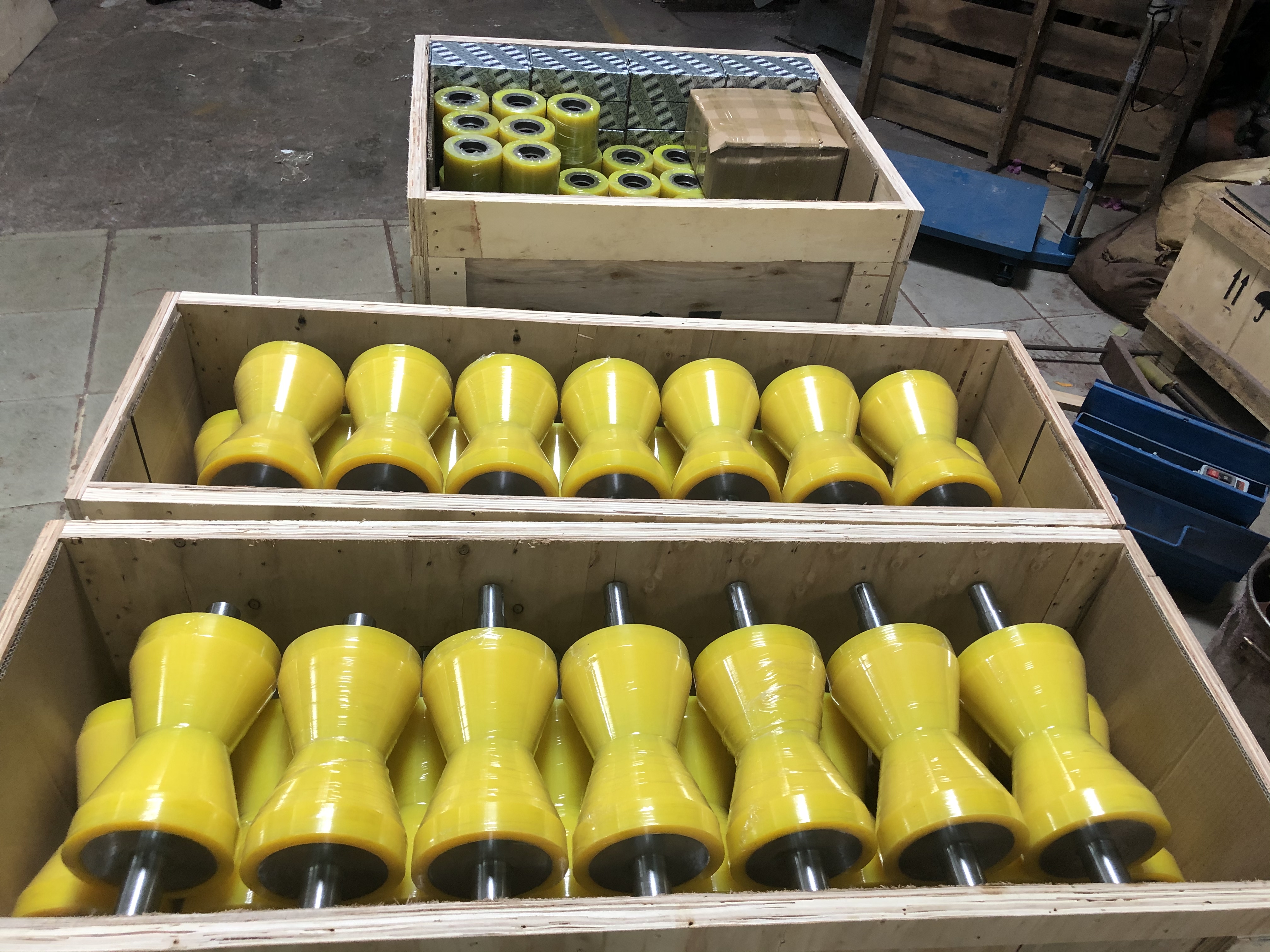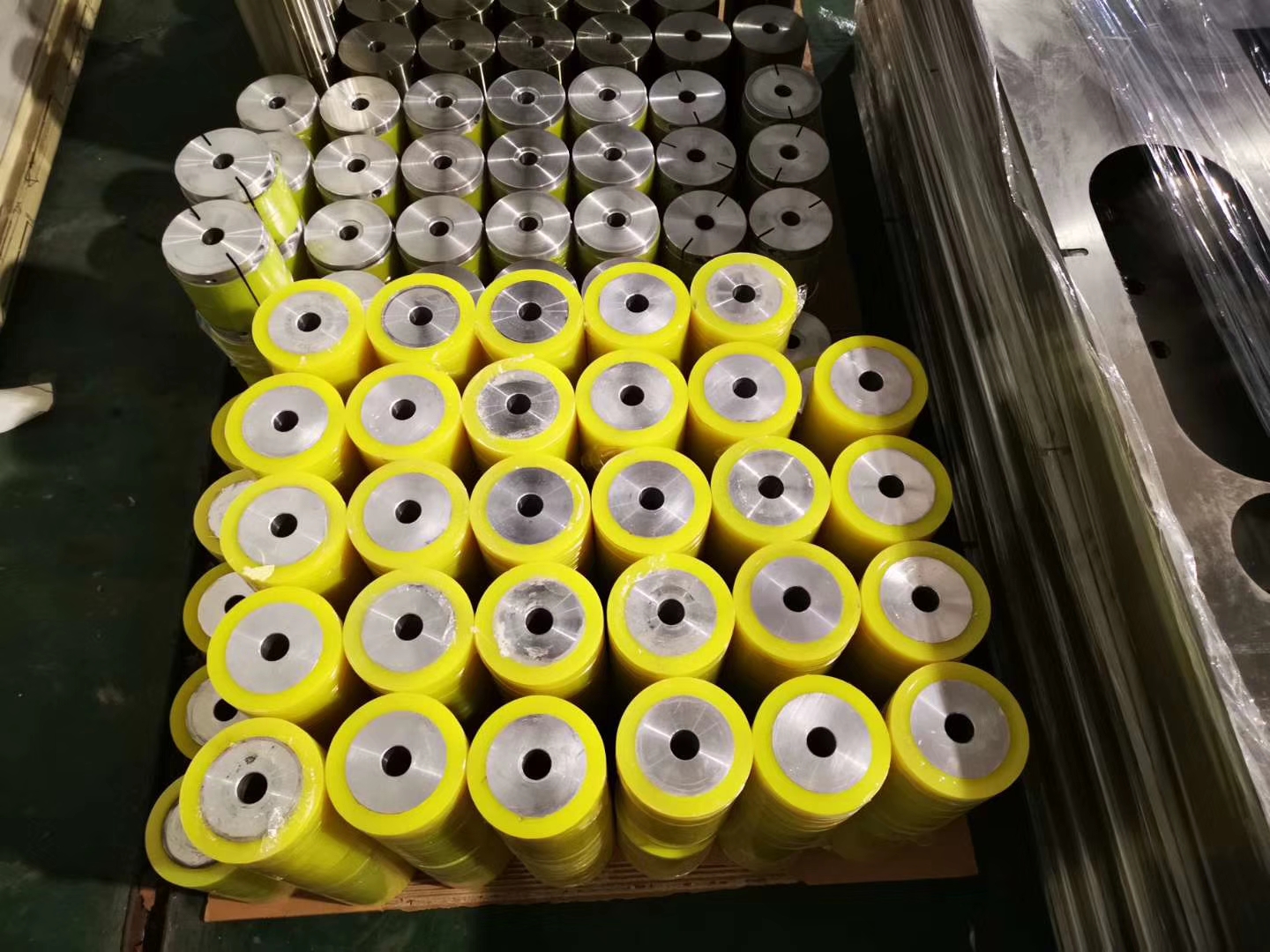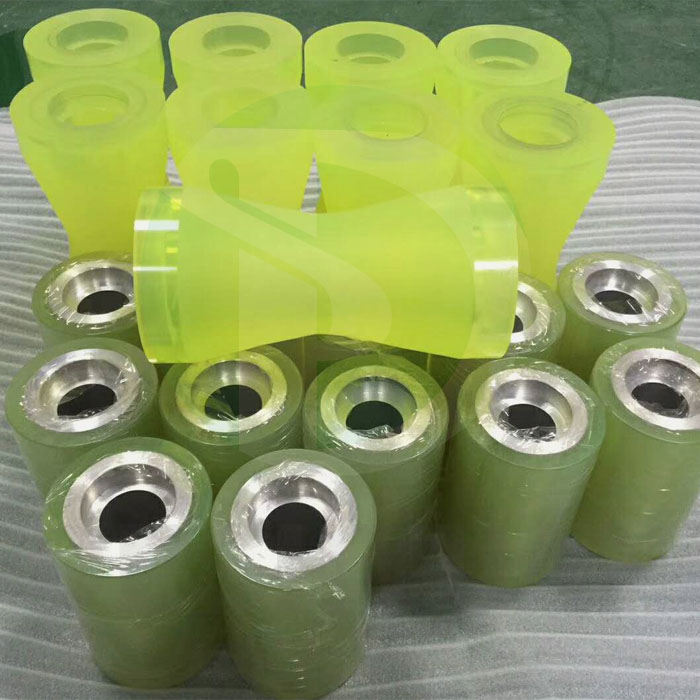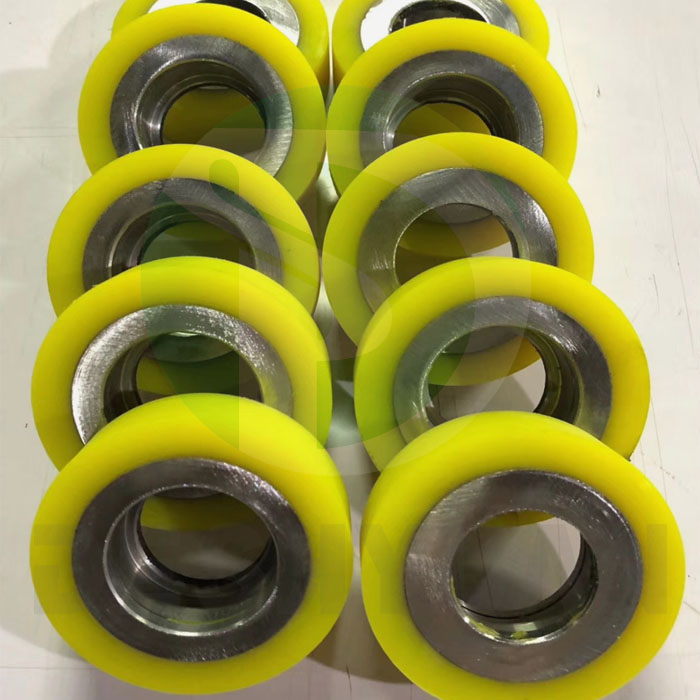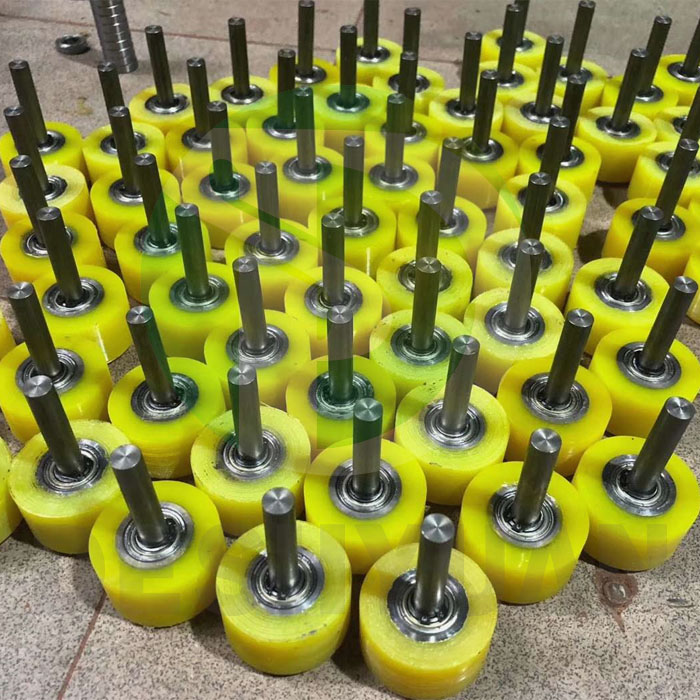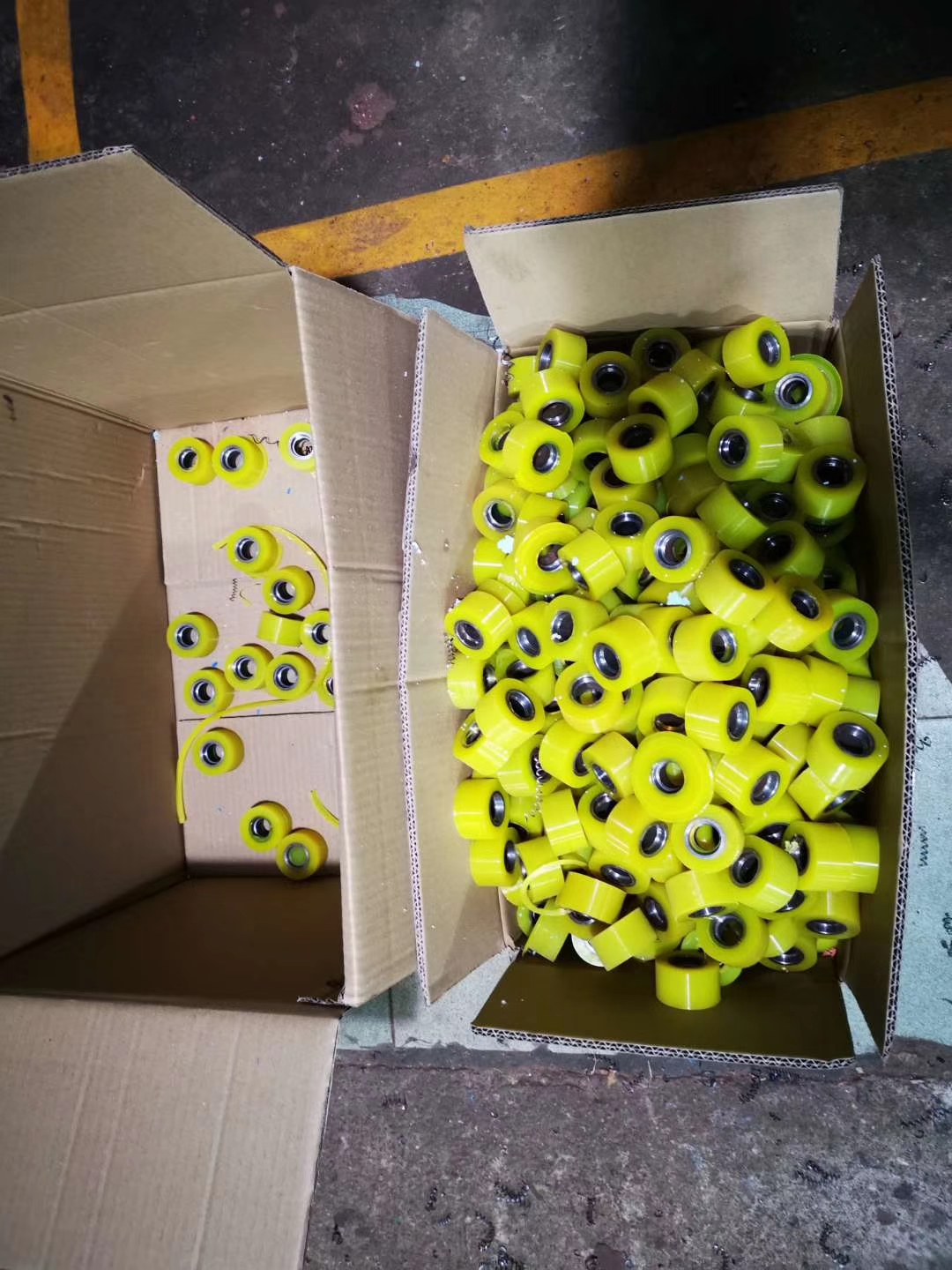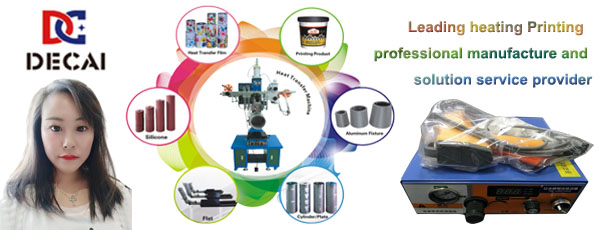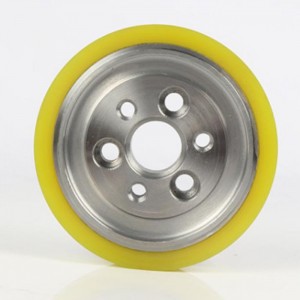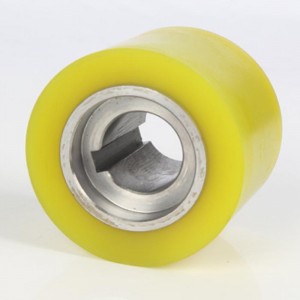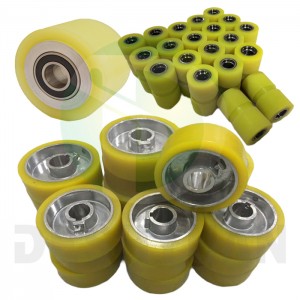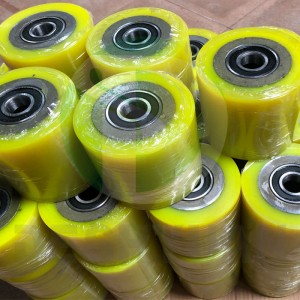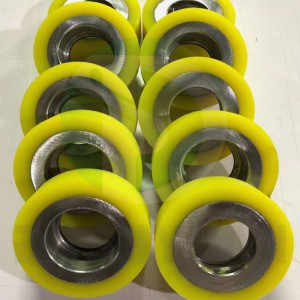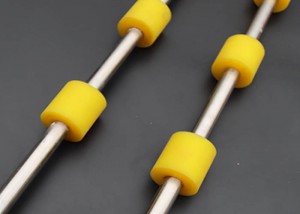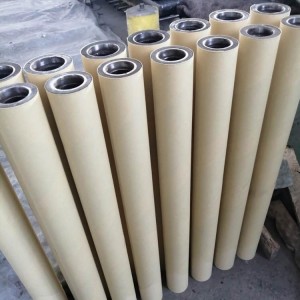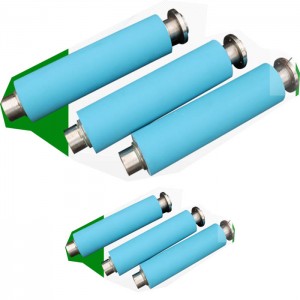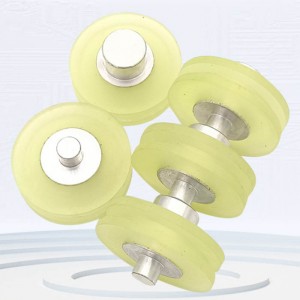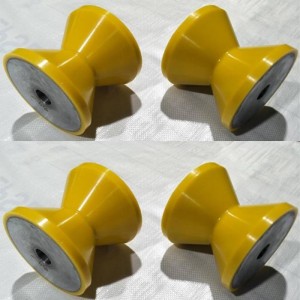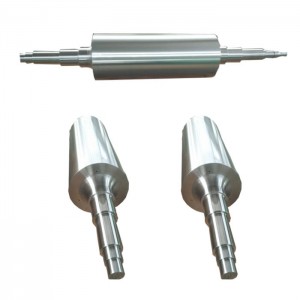PU or polyurethane wheels with 6 holes
If you’re looking for a set of precision rubber rollers that will serve you well, you need to work with the right manufacturer.
Rubber rolls feature a rubber outer covering and a metal core. They typically feature grooves, which offer a variety of possible uses depending on the application, such as: increasing the amount of coating, smoothing wrinkles out from a paper or plastic film, preventing belts from slipping in a conveyor system, embossing surfaces, helping to release heat created by friction and adding texture to rubber rolls.
Advantages of DECAI Rubber Rollers
Rubber rollers offer their users a wide range of advantages. First, unlike metal rollers used in conveyor system, rubber rolls have high coefficient of friction, which provides great traction in moving parts and components. Also, rollers can compensate for small changes emerging from machine functions. In addition, these rollers offer all of the advantages of rubber itself.
Proper Care for Rubber Rolls
Rubber rolls, just like every other component, has its limits and should be used as per the instructions. To learn how to extend the working life of your rubber rolls, read the advice below.
1-Temperature Regulation
High temperature is an enemy of rubber, regardless of the rubber type used for making rolls. Therefore, it is best to avoid rapid heating while using rubber rolls. You should also avoid rapid heating because the bonding adhesive usually has low heat resistance even lower than the rubber. If your application demands work under high temperature, we recommend you keep your roller temperatures under operating range by water cooling them.
2-Storage
To avoid damage, you also need to store them properly. While storing a rubber roll, you must hold the shafts and stand them upright, so the rubber part does get exposed to other materials. Moreover, since rubber can be damaged by UV light, we recommend that you store your roller in a cool and dark place.
3-Maintenance Checks
During regular maintenance checks, you need to pay special attention to a number of roller parts. These include: ball bearings, axes and gears. Watch out for: worn-out ball bearings, bearings misaligned along their axes, overloaded gears, faulty gears, unbalanced rollers and deflected rollers.
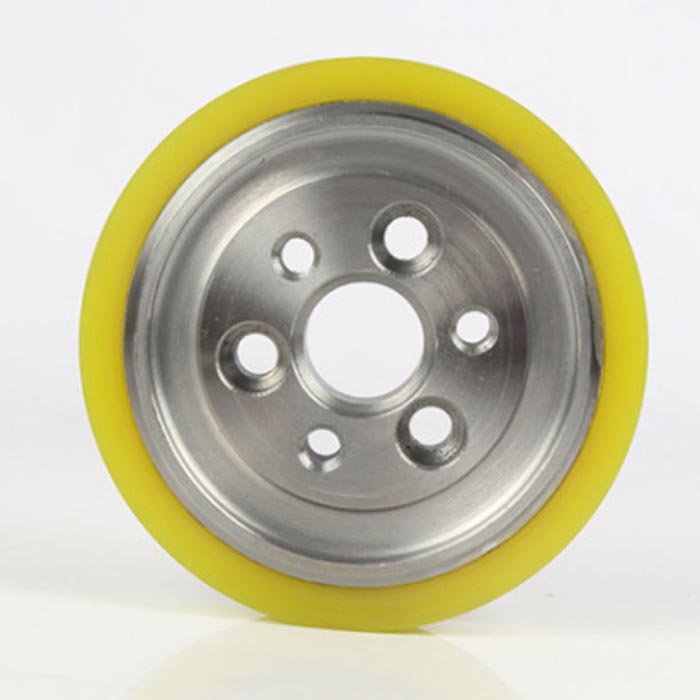
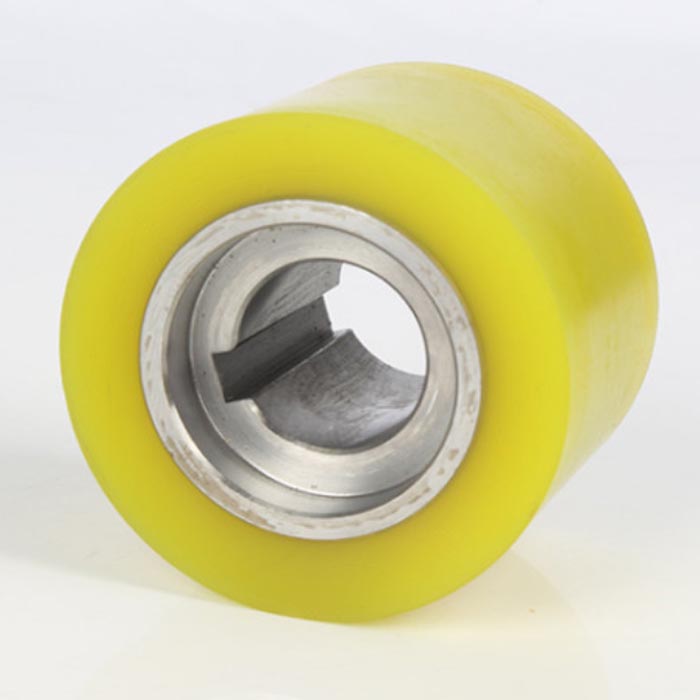
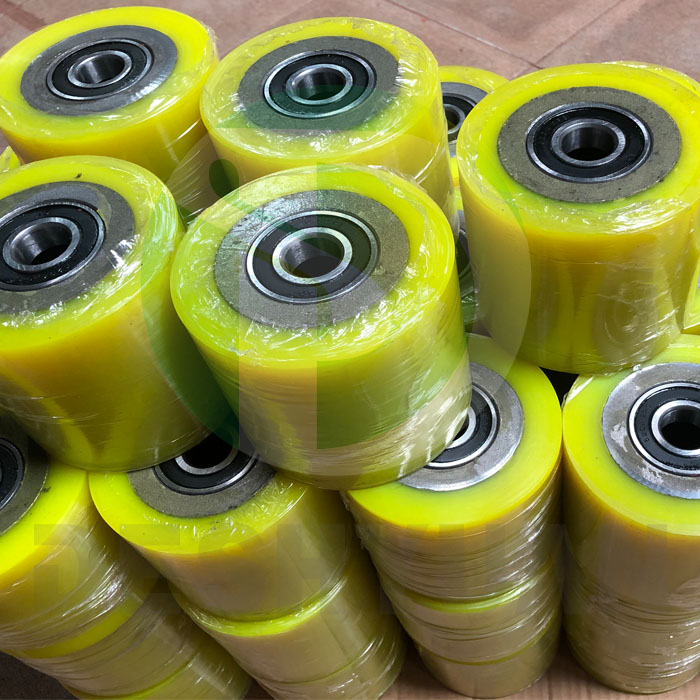
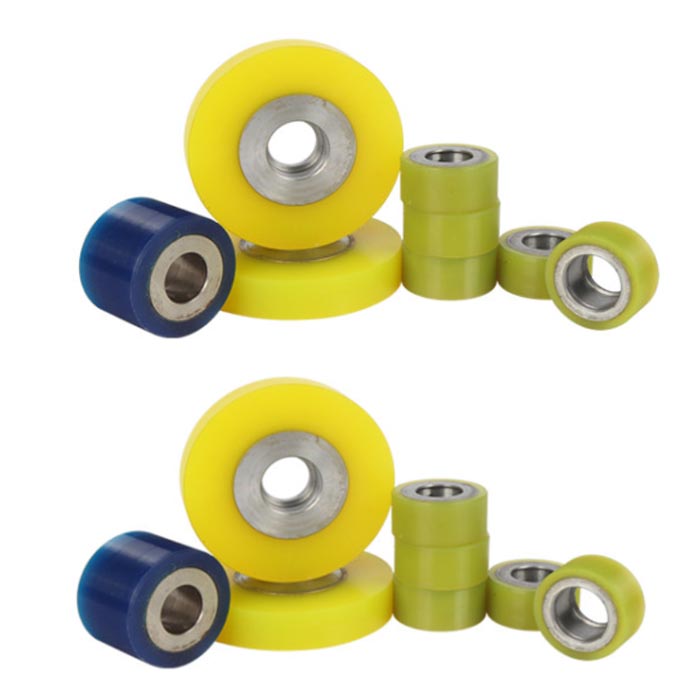
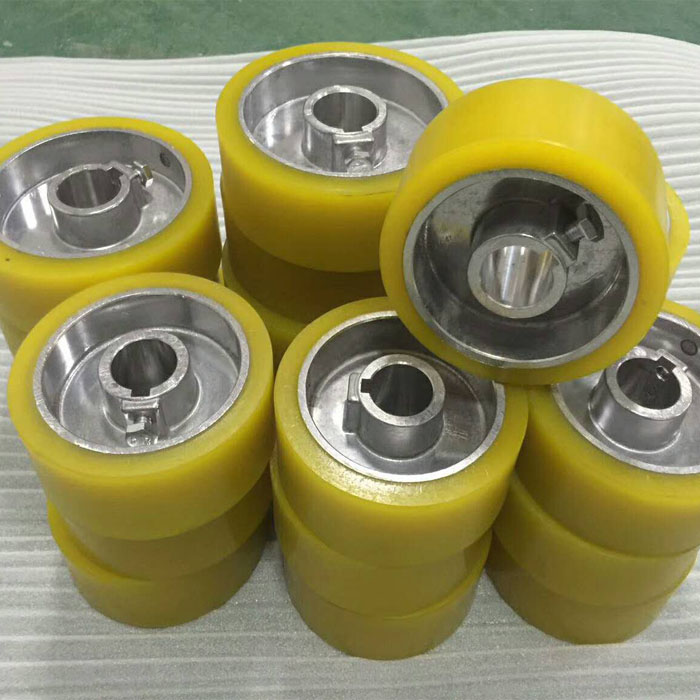
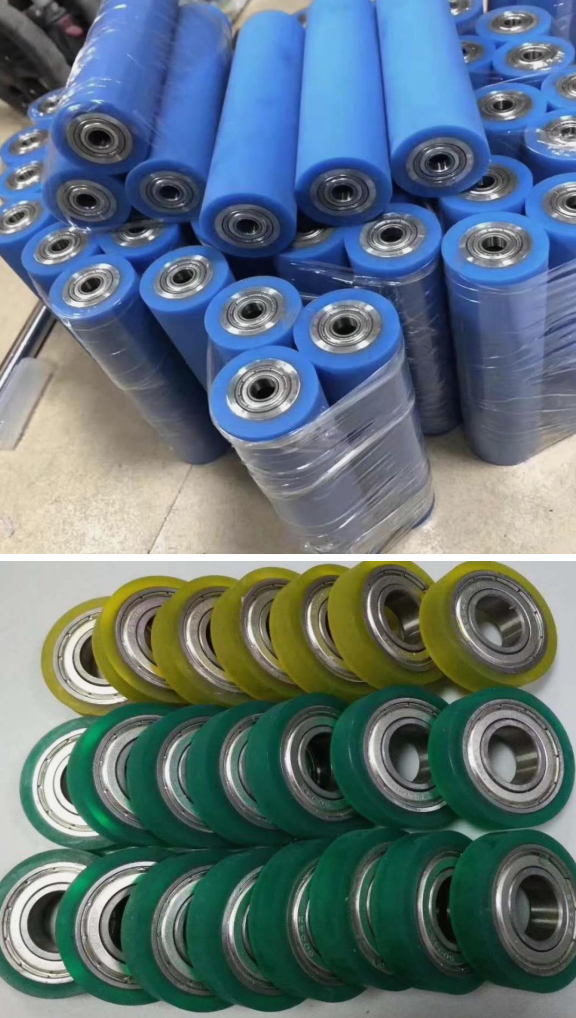
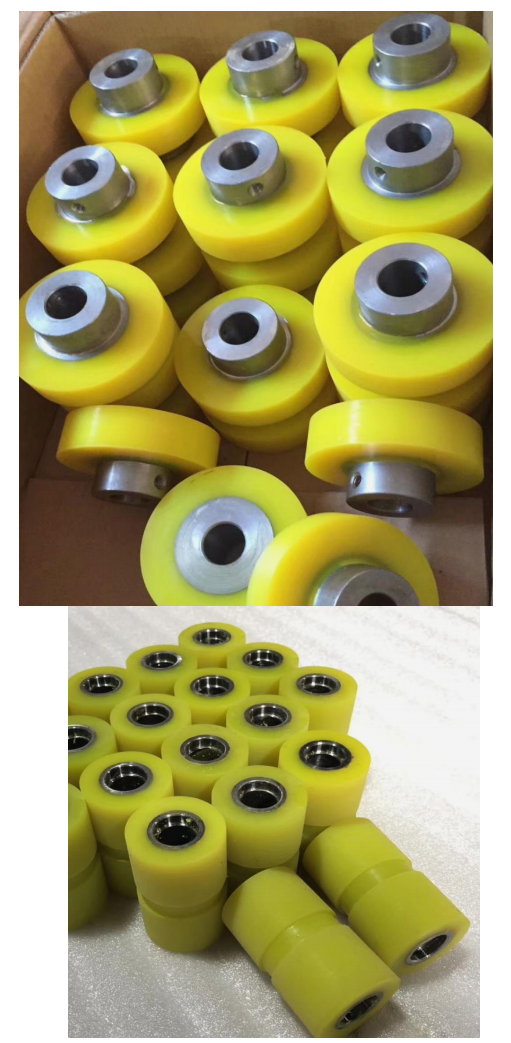
Types of rubber roller
1-Ink rollers, also called printing rollers, apply ink to paper and other materials; rollers may contain ink within themselves or they may be engraved with a pattern.
2-Laminating rollers, made of heat resistant materials like silicone rubber, are heated up to 500°F to laminate materials on both a small and large scale.
3-Drive rollers are movement focused rubber rollers. Often used for converters and web machines, they operate using integral shafts equipped with keyway that acts as a gear.
4-Guide rollers, or idler rollers, provide support to other roller systems like conveyors, but they do not actually move anything.
5-Grooved rollers are called so because they have a grooved pattern, usually a spiral, U or V; grooved rollers are usually part of moving systems like belt driven conveyor systems.
6-Conveyor rolls, or conveyor rollers, simply move, or convey, materials.
7-Live shaft rollers are designed to withstand difficult environments and high load quantities; they have external bearings in which both the roller shaft and the roller rotate.
8-Dead shaft rollers have internal bearings located at the same place as a spinning roller that spins around a stationary shaft.
9-Cleaning rollers are used to remove dirt, dust and other contaminants from different surfaces. They are highly specialized to each surface they clean.
10-Spreader rollers, frequently machined with specialized groove designs, like herringbone, spiral, circumferential and lateral-fluted, are commonly used for webs spreading machinery and other spreading applications. In the case of web spreading machinery, spreader rollers stretch and spread the web to prevent and fix wrinkles.
11-Stinger rollers, finally, are configured very much like dead shaft rollers, but they are designed specifically for marine applications.
12-Urethane rollers, also known as polyurethane rollers, are made from a synthetic roller from polyurethane. They are inexpensive to produce, they have many great qualities, including: shock resistance, formability, durability, elasticity and strength. Urethane rollers are best for use in: data storage, packaging and assembling, printing, material handling, measurement systems and office equipment.
13-EPDM rollers are heat resistant, corrosion and oxidation resistant and weather resistant, and are thus quite versatile. However, they do not hold up well against petroleum products.
14-Industrial rubber rollers are rubber rolls used in industrial applications, primarily manufacturing machines like: stamping presses, conveyor systems, bending machines, printing presses, and the like. Many types of rollers can be categorized as industrial rollers, as long as they perform industrial applications.
